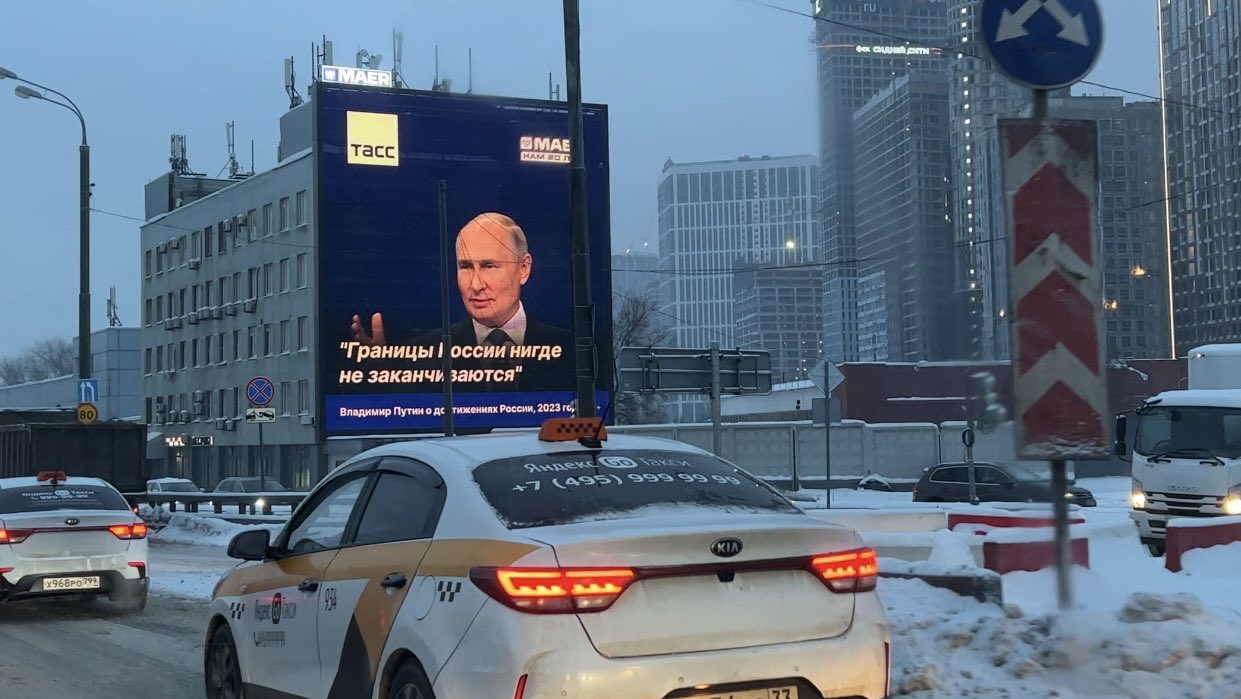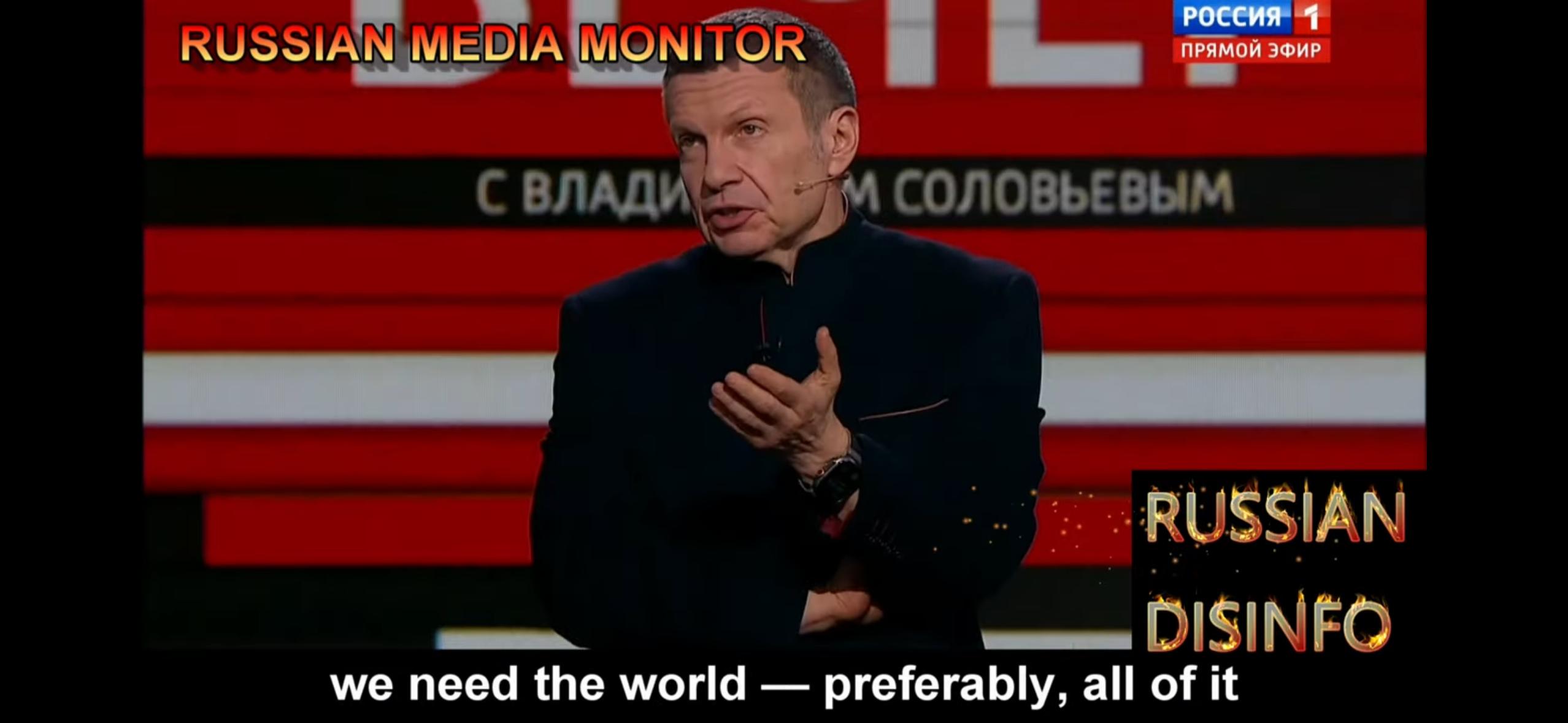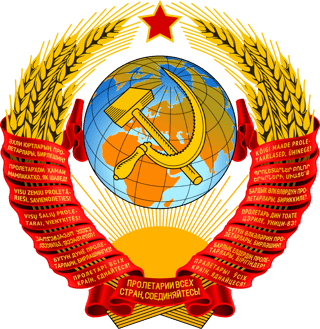Many fear that Latvia, Lithuania, Estonia states will be attacked next if Russia succeeds in Ukraine. But why was there no such fear before the full-scale invasion of Ukraine? Is Russia supposed to become stronger if it succeeds in Ukraine? Or is it just based on the assumption: the more you get, the more you want?
-
1related politics.stackexchange.com/q/83581/21531– Italian PhilosopherCommented Apr 12 at 22:36
-
16Why do you think there was no such fear before the invasion of Ukraine? Estonia has been actively preparing for a Russian invasion for decades. Finland started planning for the next Russian invasion right after the Winter War, and has never stopped.– barbecueCommented Apr 13 at 19:14
-
5Does this answer your question? How reasonable are fears of Russia attacking any NATO country in the foreseeable future?– sfxeditCommented Apr 13 at 19:37
-
1Not sure why this question is being voted to close, it is a good one. A friend of mine is Lithuanian, and always kept telling me of his fears of Russia invading his country. Also, the suggested question is related, but this question is specific to these three countries who are different from other Nato members due to being between Russia main land and Kaliningrad. This could form part of the answer too.– MocasCommented Apr 14 at 13:47
-
3Why would anyone not be concerned that Russia's invasion of Ukraine might be an expression of aggressive, expansionistic intent that might be turned next on other neighbors?– John BollingerCommented Apr 15 at 19:55
5 Answers
- There were concerns that Russia might attack. You mention the "full-scale" Russian invasion of 2022. Consider the decisions on the 2016 NATO summit in response to initial Russian invasion.
- President Putin seems to have grossly misjudged the will of Ukraine to resist. This is evidence of a dysfunctional decisionmaking process in Russia. Who knows what he is told, and what he believes, about the ease of conquering the Baltics?
(Guessing what he really thinks is out of scope for Politics Stack Exchange. The policy implications of the uncertainty are in scope.) - To explain the problems Russia has to defeat the much smaller Ukraine, Russian spokespersons claim that they are "at war" with all of the West. Such propaganda can develop its own momentum, "forcing" Russia to attack if it does not want to look weak. And looking weak might endanger the survival of the current government, which the current government equates with the survival of the nation.
-
4out of curiosity, why do you put "full-scale" in quotes? do you not consider the Russian invasion of Ukraine to be full-scale?– njzk2Commented Apr 14 at 12:44
-
2@njzk2: Among the more obvious reasons not to consider it full-scale, Russia is barely involving their air force. Commented Apr 14 at 13:26
-
15@njzk2, to the contrary. I'm now aware that I underrated the invasion 10 years ago. Calling 2022 "full scale" perpetuates the myth that 2014 was "not quite real." 2022 was renewed intensity to an ongoing invasion.– o.m.Commented Apr 14 at 14:19
The fear is based on receiving more objective evidence that Russian leadership desires to expand its influence to more closely match the geographic reach previous Soviet and Russian empires.
While there have long been people (and sometimes leadership) in Russia saying that neighbouring countries and perhaps Eastern Europe belong or should belong to the Russian sphere of influence, much as they did in the days of the Cold War, it's not unreasonable to dismiss this as just nationalist talk, particularly when the statements are intended for domestic consumption within the country.
Actual invasions are a different thing, however. The invasion and takeover of Crimea could be dismissed as Russia needing to keep its (strategically very valuable) naval port in Sevastopol, but the subsequent invasion of Ukraine and attempt to take the capital make it clear that Russia's declared intent to exercise significant control over nearby countries is more than just talk.
If Russia manages to exercise control over Ukraine (or perhaps even if not), the next obvious targets in a westerly direction are the Baltic states since they are close (two border on the main part of Russia itself; the third borders on Russia's exclave Kaliningrad and Belarus), small (Lithuania has a population of less than three million, and the other two less than two million), and were part of old Soviet empire. Estonia and Latvia still have a significant (20-30%) number of ethnic Russians in their populations. ("Protecting" ethnic Russian minorities has been used as a reason, pretextual or not, for Russian military actions in the past.)
These characteristics make them not only plausible targets for empire expansion, but also, because they are small and "distant" members of NATO, good tests to see how how serious major NATO countries are about coming to the defense of any member that is attacked, even if it involves fighting against another nuclear power.
Note that, because of the "why was there no such fear before?" part of your question, I have assumed you are talking about "Western" countries, and not the Baltic states themselves. Estonia, Latvia, Lithuania, Poland and probably several other countries in the neighbourhood have had no opinion change at all about Russia: the have always considered Russian imperialism to be a great danger to them, a fear amply justified in their eyes by hundreds of years of history. This is why they scrambled to join NATO as quickly as possible after the fall of the Soviet union. It's just more western countries that recently took a while to come around to their point of view.
-
1The other reason it's hard to dismiss this as just "nationalist talk" is Russia still effectively controlled those territories in the living memory of those now in control of Russia and it's military. It wasn't some distant past. Commented Apr 15 at 20:52
-
1@JoelCoehoorn Within the Baltic states, Poland and others, yes. Because the question mentioned "no such fear before the full-scale invasion of Ukraine," I took it to be talking about Western Europe and other parts of the world, and was explaining their attitude and position. The Baltic states et al. have had no change in attitude: they have always considered Russia to be a huge danger to them and that's why, among other things, they scrambled to get into NATO as soon as they possibly could. It just took a little more proof for the rest of the world to catch up.– cjsCommented Apr 16 at 0:26
This part of your question is wrong: "why was there no such fear before the full-scale invasion of Ukraine?"
For especially Estonia then the situation has been feared long before the invasion of Ukraine. Also before Euromaidan.
The demographics of Estonia resemble both South Ossetia and Donbas with a big Russian speaking minority that has gotten their news from within Russia.
This information war, with very nationalistic broadcasts by Russia, has generated a mood that could be the excuse for Russia to "liberate" the population at some point.
And this powder keg is also the reason there has been permanent NATO troops in Estonia for many years now.
There has been an increased fear of Russia's attack against Latvia, Lithuania, Estonia, other neighboring countries, such as Poland, and other non-neighboring countries, such as the US, UK and France, after the invasion of Ukraine started, because of what the Russians themselves say (and then do).
- Highly ranked Russian officials such as President Putin and ex-President Medvedev announced their threats on both Russian state TV and social media.
- Prominent Russian propagandists announced on Russian state TV on numerous occasions specific threats and detailed Russia's aggressive plans against specific countries in question.
- The threats and plans similar to the ones above had been issued in the past before the wars in Chechnya, Georgia and Ukraine, and then they were in fact followed by brutal invasions and wars in these regions. Historical examples show that aggressive rhetoric is often followed by aggressive actions. Hence the fears of Russia not stopping in Ukraine, but expanding further.
- The old Soviet emblem of the entire planet and the hammer and sickle with the red star has not been officially banned. The domination of entire planet is still the Russian imperialist goal, inherited from the USSR ideology. In fact, the expansionist Soviet ideology has been rebranded by a former Soviet KGB officer, and now Russian President Putin. This ideology is now understood as annexation of the Baltic states and other countries in the former Soviet sphere of influence as a minimum. And this is only step one of many. I recommend to take the Russian official words and images seriously, and not as empty slogans, because Russians do what they say.
References:
- Russian weatherman recommends nuclear strikes against NATO countries - YouTube
- Vladimir Solovyov says Russia will strike NATO objects in the future - YouTube
- Pundit stuns the host by admitting Russia's expansionist goals go beyond Ukraine - YouTube
- Vladimir Solovyov wants to nuke Western cities - YouTube
- Vladimir Solovyov threatens France, UK and US - YouTube
"The borders of Russia do not stop anywhere" (a quote by Russian President Putin
Prominent Russian propagandist Solovyev threatens the world on Russian state TV
See more here:
The state emblem shows the traditional Soviet emblems of the Hammer and Sickle and the Red Star over a globe, and two wreaths of emmer wheat covered by "Workers of the world, unite!" in the official languages of the Soviet Republics, in the reverse order they were mentioned in the Soviet Constitution.
-
@NoDataDumpNoContribution TY for scaling the emblem down, but I think the original emblem should be scaled down. The current one look slightly off: background, sun, wheat are all off. I am referring to wikipedia and to my memory of the days in the USSR... Commented Apr 15 at 21:45
Russia was supposed to become stronger if it succeeds in Ukraine.
This is why Russia invaded Ukraine starting from. Building on achieved, it will be easier to mount an attack on Baltic states than before. V. Putin's vision is well known.
Any declarations from the side of Russia that this is not the case are not seen as trustworthy as such declarations have been made for Ukraine also, including the treaties signed.
Also, Russian PR seems building a skewed reality again to depict attacks on Baltic states in place and legitimate.


